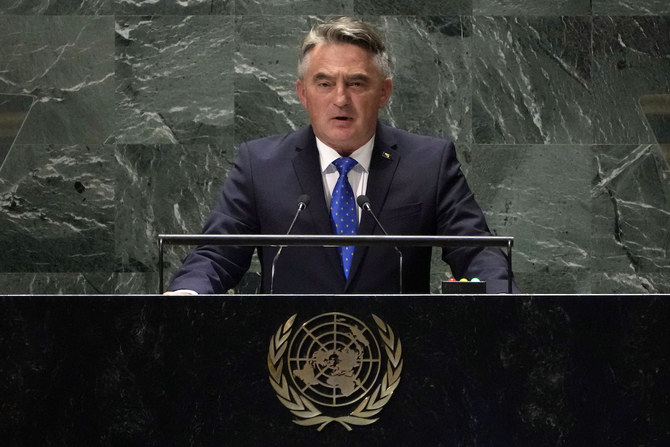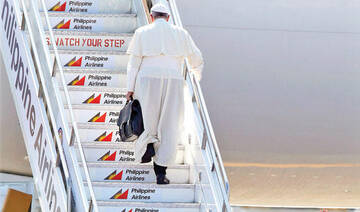LONDON: The UN should support Bosnia and Herzegovina and its institutions to help maintain peace in the Western Balkans, Zeljko Komsic, the chairman of the country’s tripartite presidency, said on Wednesday.
Addressing the UN General Assembly in New York, he said: “If the United Nations wishes to preserve peace in the Western Balkans, then it should support those who have not violated democratic and civilization norms, who have not committed genocide, who are not part of joint criminal enterprises, did not destroy people’s lives because of their ethnicity, did not destroy other people’s temples or shrines, and did not advocate revenge.”
Komsic warned that Bosnia and Herzegovina’s neighbors cannot divide the country “among themselves without entering into mutual conflict.”
He added that “there are many, both in the East and the West, who believe that their barely hidden support for those who want to completely control, and ultimately divide, Bosnia and Herzegovina will bring stability to the Western Balkans.”
But he said any attempt to divide the country will not bring stability or progress to the region.
“We will certainly not allow the division and disappearance of our 1,000-year-old state at any cost, no matter what anyone thinks about it,” Komsic said.
He also highlighted the problem his nation faces with regard to the number of people who migrate to other countries in search of better lives.
“In my country, there is a significant outflow of population going to larger and more-developed countries, mostly to countries we view as Western democratic countries,” he said.
This “brain drain” of educated professionals, such as doctors, engineers and scientists who leave in search of better opportunities, affects a number of smaller countries, he added.
“The current form of migration management has reached such a stage where large and powerful countries, for their own benefit, carry out a certain type of selection of migrants in such a way as to select the best and most educated among them … ushering them to larger countries where their knowledge and abilities are exploited exclusively for the benefit of these larger systems,” said Komsic.
This means “the potentials and capacities of smaller countries from which the migrants come are being weakened” as they lose “their best-quality personnel” and the “investments made in creating these highly qualified profiles.”


























